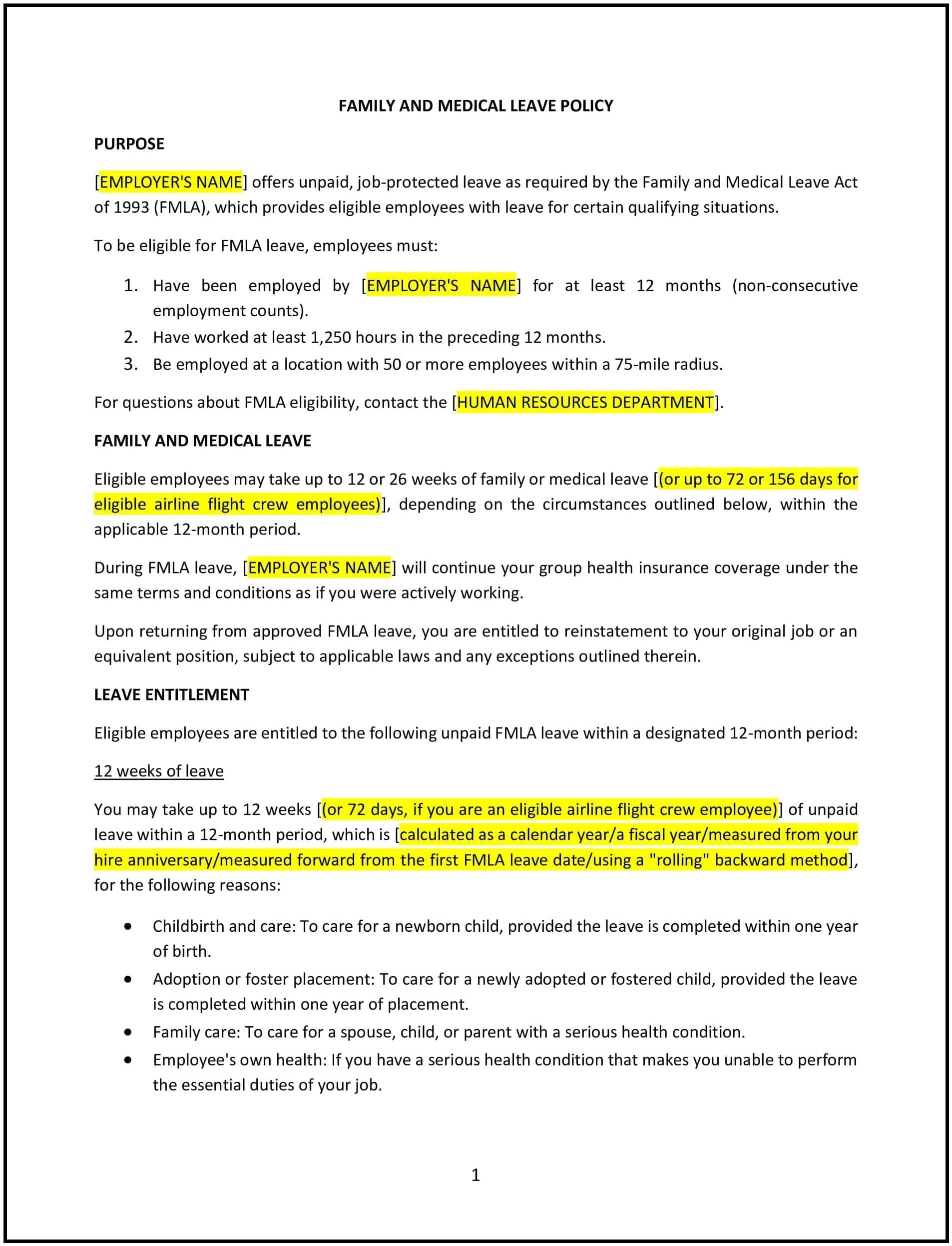Family and medical leave policy (West Virginia): Free template
Got contracts to review? While you're here for policies, let Cobrief make contract review effortless—start your free review now.

Customize this template for free
Family and medical leave policy (West Virginia)
In West Virginia, a family and medical leave policy provides employees with time off to address personal or family health needs, bonding with a new child, or other qualifying events. This policy aligns with the federal Family and Medical Leave Act (FMLA) and any additional state-specific regulations, ensuring employees understand their rights and responsibilities while maintaining consistency in managing leave requests.
The policy outlines eligibility criteria, procedures for requesting leave, and guidelines for job protection during the leave period.
How to use this family and medical leave policy (West Virginia)
- Define eligibility: Specify which employees are eligible for family and medical leave based on employment duration, hours worked, and other criteria outlined by FMLA or state laws.
- Outline qualifying events: Include events covered under the policy, such as the birth or adoption of a child, serious health conditions, or caring for a family member with a qualifying condition.
- Provide the request process: Detail the steps employees must take to request leave, including required documentation, notice periods, and approval processes.
- Explain job protection: Confirm that employees’ positions are protected during their leave, as required by FMLA and West Virginia laws.
- Address pay guidelines: Clarify whether the leave is paid or unpaid, and provide information on using accrued paid leave (such as PTO) during the leave period.
Benefits of using a family and medical leave policy (West Virginia)
- Supports compliance: Aligns with FMLA and West Virginia labor laws to improve legal adherence and employee protections.
- Promotes work-life balance: Allows employees to address personal or family health needs without jeopardizing their employment.
- Enhances employee trust: Demonstrates the organization’s commitment to supporting employees during critical life events.
- Reduces disputes: Provides a clear framework for managing leave requests, minimizing misunderstandings or conflicts.
- Ensures consistency: Establishes uniform procedures for granting and managing family and medical leave across the organization.
Tips for using a family and medical leave policy (West Virginia)
- Communicate the policy: Share the policy with employees during onboarding and ensure it is easily accessible for future reference.
- Train managers: Provide training to supervisors on FMLA and state-specific requirements to handle leave requests fairly and consistently.
- Monitor compliance: Regularly review leave management practices to ensure adherence to FMLA and West Virginia laws.
- Encourage open communication: Foster a supportive environment where employees feel comfortable discussing leave needs with HR or their manager.
- Review periodically: Update the policy as needed to reflect changes in federal or state regulations, workplace practices, or employee needs.